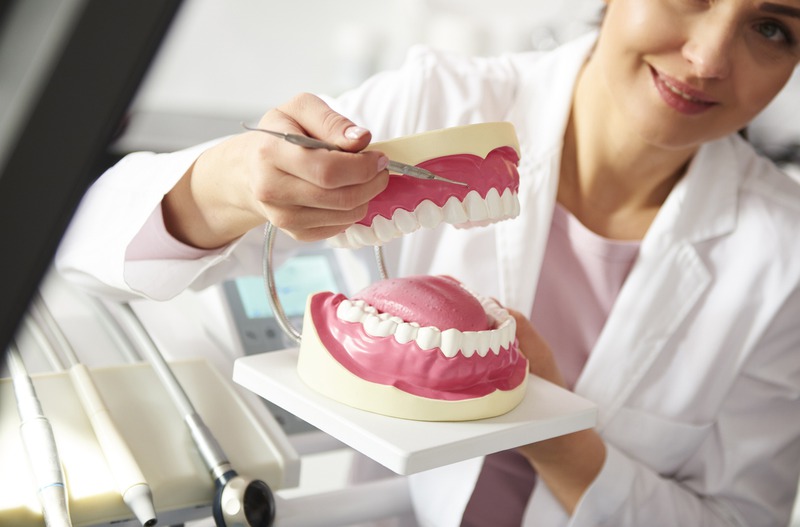Oral health needs evolve at each stage of life, and knowing the right approach will help maintain a healthy smile. From infancy through adulthood to senior years, dental care involves different practices. Adjusting your oral hygiene routine to meet age-specific requirements ensures optimal oral health throughout your life.
What Dental Practices Should I Follow at Different Ages?
Infancy and Early Childhood Dental Care
During infancy, even before teeth arrive, caring for the gums prepares for healthy teeth. Gently wiping your baby’s gums with a clean, damp cloth helps maintain cleanliness. Once teeth start appearing, introducing a soft-bristled toothbrush with fluoride-free toothpaste is recommended.
-
Schedule your child’s first dental visit within six months after their first tooth appears.
-
Discourage prolonged use of pacifiers or thumb-sucking to prevent misaligned teeth.
-
Avoid putting your baby to bed with bottles containing sugary drinks to reduce the risk of tooth decay.
By establishing a routine, children become comfortable with dental care early in life. Regular check-ups become a habit, paving the way for strong, cavity-free teeth.
Dentistry Needs During School Age
As children grow, dental care expands to cavity prevention and learning proper brushing and flossing techniques. Permanent teeth start replacing primary ones, necessitating attention to dental alignment and cavity protection through regular checkups and cleanings.
Some children experience dental emergencies like broken or loosened teeth during sports or playing activities. If these instances occur, having quick access to places such as an emergency dentist in Missoula helps handle unexpected dental troubles. Prompt care prevents more serious dental complications.
-
Supervise daily brushing and flossing until your child can perform these tasks effectively alone.
-
Include nutritious, tooth-friendly snacks such as fruits, vegetables, and nuts.
-
Discuss cavity prevention treatments like dental sealants or fluoride applications with the dentist.
The Teenage Years Teeth Care
During teenage years, appearance matters, leading to a desire for cosmetic dental treatments. Braces or aligners may help teens with misaligned teeth, boosting both their oral health and self-confidence. Schedule routine visits for professional cleanings, assessments, and cosmetic consultations.
If traditional braces seem discouraging, modern solutions such as clear aligners offer a more aesthetically pleasing option. Transparent, removable aligners conveniently straighten teeth. This dental technology provides an appealing way for teenagers seeking discreet orthodontic care.
-
Encourage good oral hygiene routines by explaining their impact on overall health and appearance.
-
Limit sugary beverages and remind teens about proper brushing after consuming snacks.
-
Discuss wisdom teeth extraction options with your dentist to prevent overcrowding or discomfort.
Younger Adults and Dental Wellness
For individuals in young adulthood, dental care includes maintaining healthy habits, preventive treatments, and regular monitoring for dental cavities or gum disease. Professional teeth cleanings, x-rays, and routine examinations play central roles in preserving oral health.
Younger adults may start families, and maintaining oral health impacts both parents and children. Regular visits with a trusted dentist Missoula can lead to positive habits passed down through generations. Address dental issues promptly and set positive examples for younger family members.
-
Prioritize dental check-ups, routine cleanings, and screenings for gum disease.
-
Maintain balanced nutritional choices promoting oral health.
-
Discuss teeth-whitening or cosmetic procedures with dental practitioners to enhance smiles.
Dental Care in Middle Age
As people reach their 40s and 50s, oral health challenges may arise. Restorative procedures could be necessary, focusing on maintaining and repairing natural teeth. Gum recession or wear and tear requires diligent monitoring and possible intervention to maintain comfort and functionality.
Middle-aged adults often experience oral dryness due to medications or hormonal changes, heightening vulnerability to cavities. Drinking water regularly and using mouthwashes designed for dry mouth help reduce discomfort and complications. Discuss treatment approaches with dental practitioners to prevent minor issues from escalating.
-
Increase hydration to help counteract dry mouth symptoms.
-
Limit foods high in sugar, acid content, and caffeine.
-
Check dental crowns and fillings routinely to prevent further oral deterioration.
Senior Years Dental Health and Oral Care
Oral health concerns increase as people enter retirement age. Maintaining teeth, gums, and dentures becomes a priority. Dental visits address gum disease, tooth loss, oral diseases, and restore self-assurance through cosmetic and restorative treatments.
Mobility challenges and chronic health conditions could lead seniors to neglect oral health. Caretakers or family members should support seniors in regular dental visits and daily hygiene tasks. Simple actions such as brushing, flossing, and hydration keep mouths healthy longer.
-
Consider specialized toothbrushes or devices for easier dental care.
-
Attend routine professional cleanings and oral evaluations regularly.
-
Maintain balanced nutrition and adequate hydration for balanced oral health.
Special Considerations for Pregnant Women’s Dental Care
Pregnancy brings hormonal variations affecting oral health. Hormones often heighten gum sensitivity, causing inflammation, bleeding, and discomfort. Routine check-ups inform you about oral health developments and essential preventive treatments.
If pregnant, notifying dental practitioners of your condition ensures safe interactions and appropriate treatment modifications. Dentists avoid certain procedures especially in the first trimester to preserve safety. Maintain strong oral care as preventive measures for you and your developing child’s health.
-
Attend routine check-ups and consult your dentist about oral comfort solutions.
-
Brush and floss gently yet regularly to maintain healthy gums and teeth.
-
Avoid sugary or highly acidic foods and beverages whenever possible.
Final Thoughts
Oral health requirements differ throughout life’s stages. Adjusting dental care methods to match each stage enhances oral strength and longevity. Maintaining effective routines, regular professional dental care, preventive treatments, and proper nutrition provides lasting oral wellness, ensuring smiles stay healthy throughout life.

